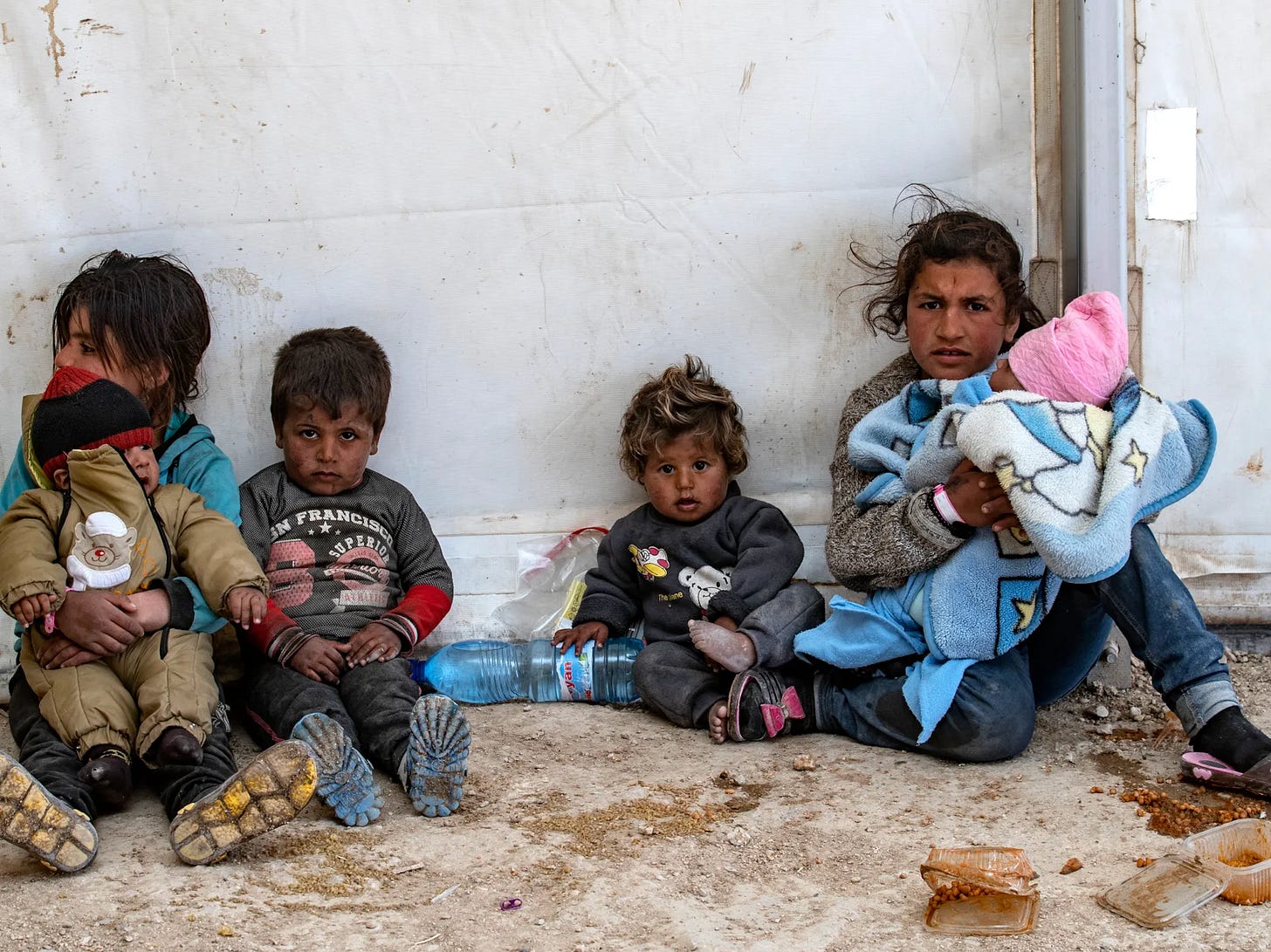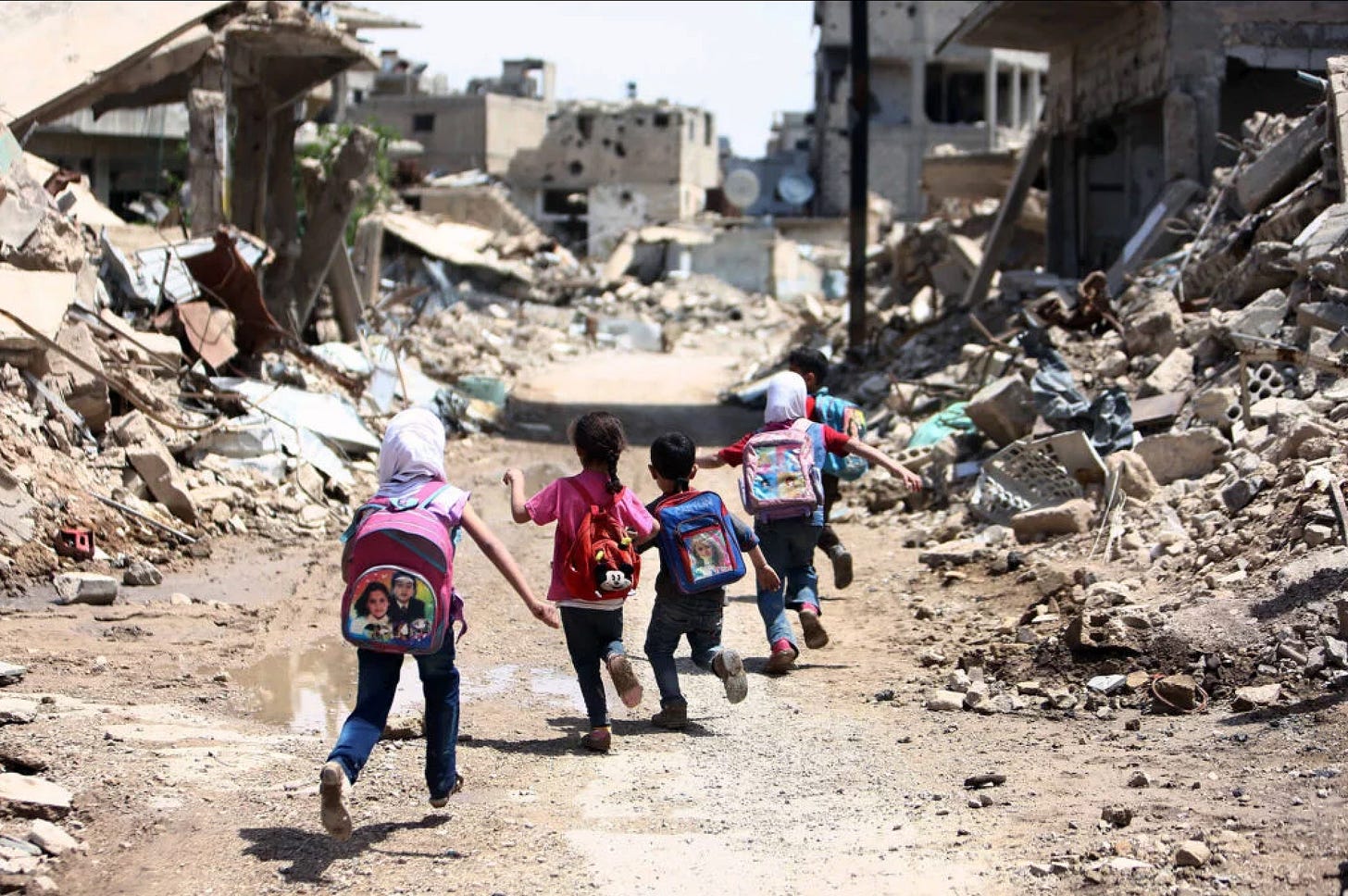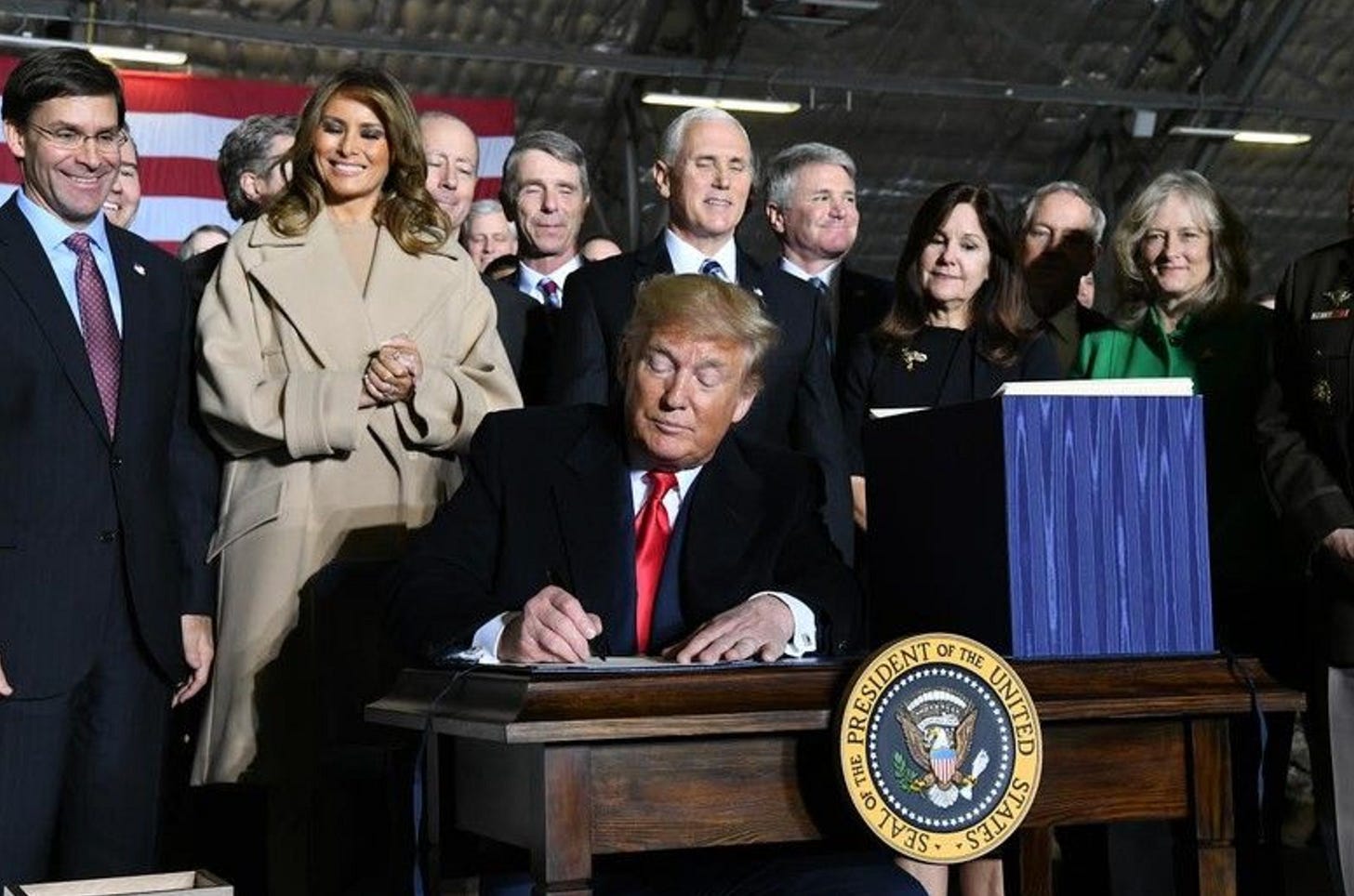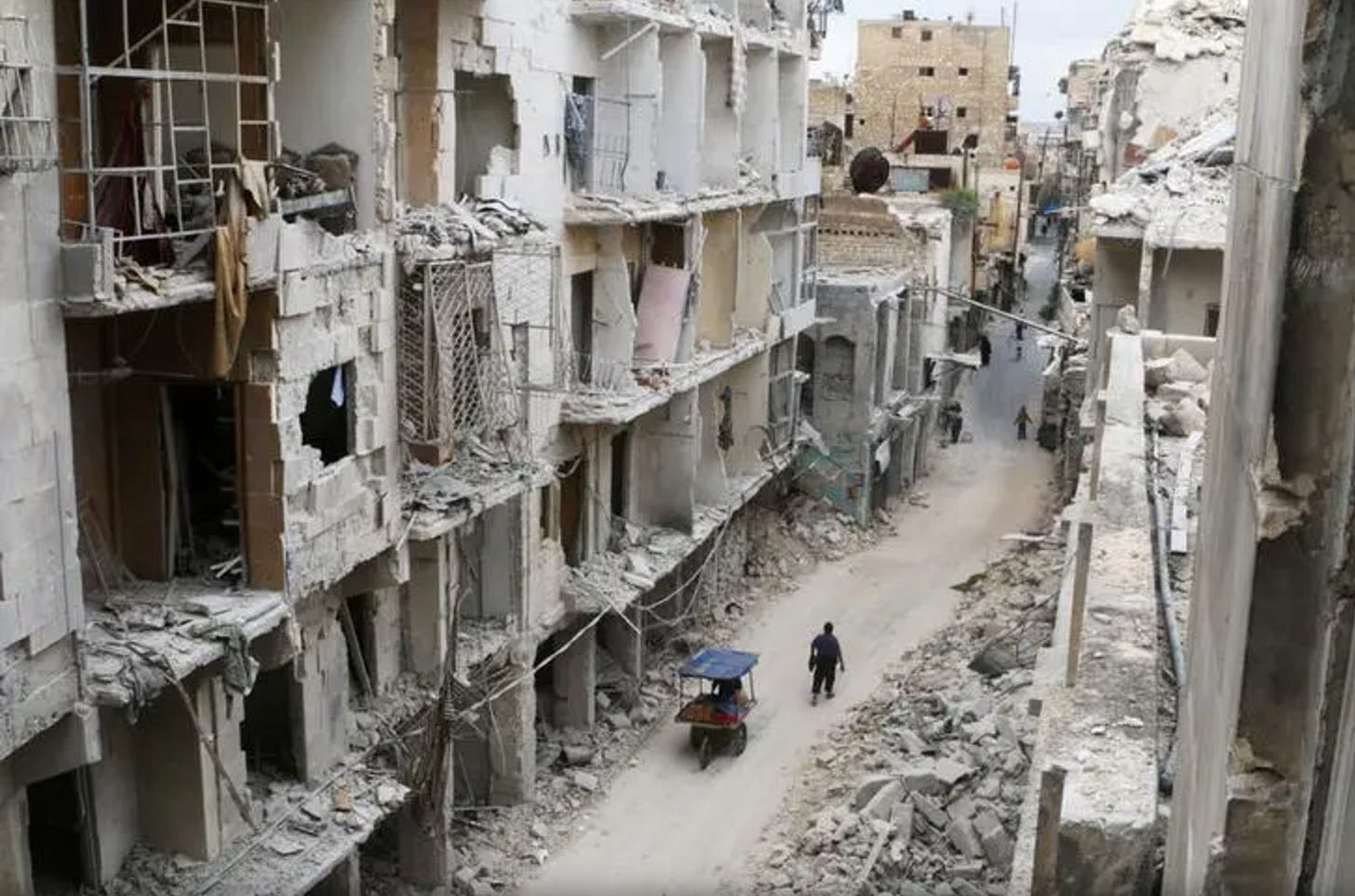Brutal War on Syria: From Extraordinarily Cruel Economic Sanctions to Supporting Terrorist Proxies. For Western Allies, All Options Are on the Table
After a decade of imposing extraordinarily brutal economic sanctions on Syria, an al-Qaeda offshoot is used to further destabilize the state and disrupt supply lines of the Axis of Resistance
From whitewashing Nazis in Ukraine to praising jihadists of Hayat Tahrir al-Sham as “freedom fighters” and “Syrian rebels”, Western leaders have abandoned common sense and moral standing.
Syria, the backbone of the Resistance Axis, has effectively become a testing ground of Western brutality towards millions of Syrian civilians who have become victims of continued inhumane economic restrictions and Western-sponsored extreme violence via proxy terrorist organizations. For well over a decade, the world has remained silent and, for the most part, indifferent to the suffering of the Syrian population as the result of financial and economic sanctions imposed by the United States and the European Union. While these restrictions, including the extraordinarily brutal Caesar Act, failed to result in regime change in Syria (the U.S.’ ultimate goal) they continue to kill thousands of innocent civilians as the result of continued deprivation of vital necessities such as life-saving medications and food.
As a ceasefire took effect in Lebanon, jihadists backed by the U.S. and Turkiye launched an offensive on the city of Aleppo to disrupt the supply lines of the Axis of Resistance as well as pursue the decade-long goal of toppling the government of President Bashar al-Assad.
The following day, President Bashar al-Assad traveled to Moscow for a working meeting with President Vladimir Putin with whom he discussed Russia’s support for Syria in its fight against terrorist organizations. For the first time since 2016, Russian warplanes are now bombing terrorists in the city of Aleppo.
The so-called “rebels” or “opposition forces” (as Western media conveniently refers to them) are, in fact, an offshoot of al-Qaeda and are associated with Hayat Tahrir al-Sham (HTS), a Salafi-jihadist terrorist organization, led by Abu Mohammad al-Jolani, an affiliate of the founder of ISIS Abu Bakr al-Baghdadi. Abu Mohammad al-Jolani is the founder of Jabhat al-Nusra, the al-Qaeda affiliate in Syria.
HTS established a stronghold in northwestern Syria, with Idlib as its center.
Connect with Lena: YouTube | Rumble | Locals | Patreon | X | Telegram
Since 2011, the United States has been pursuing regime change in Syria via all means available, including hybrid warfare. Jake Sullivan infamously wrote in an email to Hillary Clinton in 2012: "Al Qaeda is on our side in Syria."
After implementing extraordinarily brutal and outright inhumane economic sanctions on Syria, Western allies have been continuously fueling the violence by funding and training terrorist organizations to destabilize Syria and other non-aligned regional actors.
In 2019, Syrian President Bashar al-Assad explained in an interview:
"When they [ the U.S.] sent their army into Iraq, they paid the price. It's much easier to send a proxy. Al Qaeda is a proxy. There is a war between the United States and the rest of the world. Syria is a microcosm of World War 3."
Col. Richard Black, Former Virginia State Senator, shared an excellent overview of U.S. foreign policy in the Middle East and its involvement in Syria since 2011:
The Syrian war began in 2011 when the United States landed Central Intelligence operatives to begin coordinating with Al-Qaeda and other terrorist groups;
We have been unwavering supporters of Al-Qaeda since before the war formally began;
We are supporters of Al-Qaeda today where they’re bottled up in Idlib Province;
The CIA supplied them under secret operation Timber Sycamore, providing the jihadists with anti-tank weapons and all of their anti-air missiles;
We facilitated the movement of Islamic terrorists from one hundred countries and they came and they joined ISIS, they joined Al-Qaeda, they joined the Free Syrian Army, all of these different ones;
When we fight these wars we have no limits on the cruelty and the inhumanity that we’re prepared to impose on the people, making them suffer, so that somehow that will translate into overthrowing the government and, perhaps, taking their oil, taking their resources;
The Caesar sanctions were the most brutal sanctions ever imposed on ever any nation; during the Second World War sanctions were not nearly as strict as they were on Syria
The full interview (which I highly recommend!) is available on Schiller Institute YouTube channel:
The involvement of the United States in Syria began in 2011 when Congress approved extreme economic sanctions to destabilize Syria and subsequently topple Bashar al-Assad. Regime change was, in fact, the ultimate goal. The civilian toll could not have been unknown, but was likely dismissed as unimportant. The brutality of sanctions imposed on Syria over the past decade has been unprecedented; yet, Western media and policymakers continue to ignore the human toll of their failed policies.
To gain a better understanding of the current state of affairs in Syria and the role played by the United States, it is equally important to understand the proxy military aspect of opening a new front in Syria, as well as the economic tools used against the Syrian population.
Economic Sanctions: Overview
Economic sanctions are coercive instruments that intend to change the behavior of a foreign actor by increasing the cost of non-compliance with the sender’s demands. Sanctions have become a form of economic warfare and are routinely used by the United States and the European Union against more than two dozen sovereign countries that are not politically aligned with the senders, including but not limited to China, Cuba, Belarus, Russia, Iran, Central African Republic, Venezuela, Syria, Iraq, and Libya [1].
The status of the United States dollar as a global reserve currency enables the United States to use economic forms of coercion. Sanctions are designed to impose financial and economic hardship, and their actual effects depend upon the targeted entity’s ability to find alternatives as well as the sender’s capacity to increase their severity to cause more damage. Examples of economic and financial sanctions include restrictions on imports/ exports, withholding of economic aid or debt relief, prohibition of investments in key economic sectors, asset seizure or freeze, and restrictions on access to financial assistance, such as the International Monetary Fund and World Bank funding. In Syria, the U.S. has used all measures mentioned above.

Despite the intended political goals to influence key decision-makers, economic sanctions have profound and indiscriminate effects on the most vulnerable groups of civilians, primarily women and children. The Syrian refugee crisis has affected millions of displaced individuals who are in need of humanitarian assistance.
Do Sanctions Work?
Many academics share the view that economic sanctions are ineffective, immoral and fail to deliver desired results while causing substantial and unjustifiable damage, such as increased civilian suffering, hardship, and even deaths [2]. According to Dr. Robert Pape of the University of Chicago, economic sanctions fail to achieve expected objectives especially if the goal is to coerce a foreign actor into changing a policy it deems vital [3].
Overview of Economic Sanctions Imposed by the United States on Syria
The United States maintained limited sanctions against Syria since 1979 due to allegations of supporting terrorism. Since 2011, the United States has been arming paramilitary groups to support anti-Assad terrorists. Additionally, it imposed a wide range of economic sanctions on state officials, commercial business activities, trade and investment transactions, and even third-party entities to degrade the Syrian economy and forcing regime change [2].
U.S. Congress voted in favor of the most severe sanctions following President Obama’s announcement that “Assad must go” [4]. In the early 2000s, the United States imposed primary and secondary sanctions on Syria, subsequently followed by a second wave of sanctions beginning in 2011 to the present.
In 2019, the United States Congress under the Trump Administration passed the extraordinarily brutal “Caesar Syria Civilian Protection Act”. The Caesar Act imposed unprecedented economic and financial restrictions on Syria and prohibited other foreign countries from conducting business with the sanctioned country’s government or any entity that may be affiliated to it [5]. The Caesar sanctions seek to address Iran and Russia, the two major allies of the Syrian government. The impact of the brutal Caesar Act on the Syrian population was quite obvious as it increased restrictions on trade, investments and even humanitarian support. Civilians could not access vital resources and many have been left to die due to lack of medical treatment.
The sanctions target Syria’s oil sector as well as its electricity and construction, rendering any attempts to reconstruct the destroyed infrastructure impossible and causing extreme hardship to the civilian population. The European Union moved to mirror restrictive economic policies on Syria, delivering a greater impact on its civilian population who became deprived of the most basic necessities - such as vital medications and health care items, food, clothing - as the result of such brutal limitations.
A wide range of sanctions imposed on Syria include a freeze of Syrian sovereign assets held in foreign banks, prohibition on imports of Syrian oil, and restrictions on trade and imports into Syria of a wide range of goods including basic medical necessities for civilian use. Items not designated as “dual use” ie for civilian and military use, are specifically targeted. Even international humanitarian aid organizations are prevented from assisting.
As a result, Syria lost 75 percent of its GDP between 2010 and 2016 which had a direct and devastating impact on the surge in poverty, vast unemployment, starvation, lack of access to healthcare or medical supplies among its civilian population, and the resurgence of radical jihadist factions that continue to destabilize the country and control parts of its territory to this day [7].
Furthermore, the economic sanctions prevent the Syrian government from accessing the nation’s oil fields that are occupied by the U.S. troops. As seen in a now-notorious report, included below, Syria’s oil fields are “guarded” by the U.S. military.
U.S. Economic Policy Outcomes
Nearly a decade after President Obama approved the first round of sanctions in 2011, they failed to achieve their political aim to topple the government of President Bashar al-Assad. In fact, his regional position has improved following Syria’s re-admission into the Arab League in 2023, which served as an indication of the regional leaders’ pursuit of rapprochement and normalization of ties in spite of the war-torn country’s relations with the United States and the European Union.
Despite the failure to initiate regime change in Syria, severe and prolonged sanctions have caused a public health crisis and a humanitarian catastrophe as the result of the country’s steep economic collapse and years of vast restrictions that are designed to prevent the Syrian population from rebuilding their livelihoods in the war-torn state. This has been one of the main goals of U.S. foreign policy in Syria - ensuring the country lies in ruins as long as possible without an opportunity to reconstruct.
The humanitarian costs of economic and financial sanctions on Syria have been significant since they have directly contributed to the ongoing public health crisis and affected the most vulnerable groups. Syrian human rights organizations have been banned from importing medicine and supplying the most basic medical necessities for civilian use. Furthermore, updating healthcare medical software at hospitals and clinics has been a challenge for over a decade. As a result, key indicators of health and well-being across the civilian population in Syria collapsed [2]. The decline in vaccination rates among Syrian children from 95 percent in 2006 to 60 percent in 2016 resulted in a reemergence of such diseases as typhoid, measles, and rubella [2]. Due to restrictions on imports of agricultural machinery and equipment, Syrian wheat production decreased by 53 percent and lentils dropped by 70 percent between 2011 and 2016. These declines in agricultural production resulted in 38 percent of the country being unable to meet basic food requirements [2]. In 2024, the UN estimates that almost 7.5 million children in Syria need humanitarian assistance in 2024 because of the worsening economic crisis, mass displacement, and devastated public infrastructure. While the number of deaths from malnutrition, inaccessible healthcare, and lack of medical necessities is virtually impossible to estimate due to reporting limitations and ongoing military activities, the impact of the most severe and illegal economic restrictions on the civilian population has been profound and cannot be ignored.
The economic policies subjected millions of Syrians to extreme poverty, starvation, a health crisis, lack of medical care and medical necessities as well as a complete disintegration of the Syrian society that, due to the lack of financial resources and military capabilities, became the center for radical jihadist factions, such as HTS in northern Syria and other foreign elements, including al-Qaeda, over the past decade.
By continuing to turn a blind eye on the suffering of the Syrian population and preventing them from rebuilding their country, U.S. leaders are committing a crime against humanity while pursuing failing policies to grapple to the last remaining bits of U.S.’ waning hegemony.










Lena this post is absolutely fantastic, but, please don't take this the wrong way, just scratching the surface. Likely my American myopic view, but how did Assad go from hobnobbing with the Clintons, Pelosi, John Kerry and many other Washington elites to public enemy number 1 in the region. Then, whether unintended consequences or not, the rise of ISIS, or ISIL as Obama would say, and even Benghazi...I hope that one as talented and insightful as you are willing to keep digging into this tragedy. Thank you.
Wow Lena, that was a history lesson. I’ve elected to erase all my comments and observations as not sure brings anything to the table. The Millennial Kingdom will restore what is right. Have a good day and appreciate your heart for the oppressed and what is right